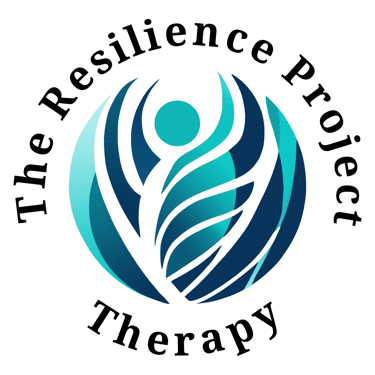How Meditation Helps Individuals with Anxiety
The Purpose and Practice of Meditation for Beginners
Christian Gray Hering, LCSW
8/16/20234 min read


Anxiety is a common and often debilitating condition that affects millions of people around the world. Anxiety can manifest as excessive worry, nervousness, fear, panic, or phobias that interfere with daily life and well-being. Anxiety can also cause physical symptoms such as a racing heart, sweating, trembling, nausea, and/or insomnia.
While there are many treatments available for anxiety, such as medication, therapy, or lifestyle changes, one of the most effective and accessible ways to cope with anxiety is meditation. Meditation is a practice of focusing your attention on the present moment, without judgment or distraction. Meditation can help you calm your mind, relax your body, and improve your mood.
In this blog post, we will explore how meditation helps individuals with anxiety and how you can start your own meditation practice today.
How Meditation Breaks Negative Thought Patterns
One of the main ways that meditation helps anxiety is by breaking negative thought patterns¹. As anyone with anxiety will attest, racing thoughts create a vicious cycle of worry and anxiety. You may find yourself constantly thinking about worst-case scenarios, dwelling on past mistakes, or anticipating future problems. These thoughts can trigger more anxiety and stress, which in turn can fuel more negative thoughts.
Breaking the vicious cycle of obsessive, negative thinking is where meditation really shines. Meditation teaches you to observe your thoughts without reacting to them or believing them. You learn to recognize that thoughts are just mental events that come and go, and that they do not define you or your reality.
By practicing meditation regularly, you can train yourself to experience your thoughts differently and reduce their power over you. You can also learn to replace negative thoughts with more positive and realistic ones that support your well-being.
How Meditation Reduces Stress and Improves Emotions
Another way that meditation helps anxiety is by reducing stress and improving emotions²³. Stress is a major contributor to anxiety, as it activates the body's fight-or-flight response and releases hormones such as adrenaline and cortisol. These hormones can cause physical and mental symptoms such as increased heart rate, blood pressure, muscle tension, breathing rate, and alertness.
Meditation can help you counteract the effects of stress by activating the body's relaxation response. This is a state of rest and recovery that lowers the levels of stress hormones and restores balance to the body and mind. Meditation can also help you regulate your emotions by increasing your awareness of them and allowing you to process them in a healthy way.
By meditating regularly, you can lower your baseline level of stress and anxiety and become more resilient to cope with challenging situations. You can also enhance your positive emotions such as happiness, gratitude, compassion, and love.
How to Start Meditating for Anxiety
If you are interested in trying meditation for anxiety, here are some simple steps to get you started:
Find a comfortable and quiet place where you won't be disturbed for at least 10 minutes.
Sit in a relaxed posture with your back straight and your hands resting on your lap or knees.
Close your eyes or lower your gaze and take a few deep breaths to settle in.
Choose an object of focus for your meditation. This could be your breath, a word, a sound, or a sensation.
Bring your attention to your chosen object and try to stay with it as much as possible. If your mind wanders to other thoughts or distractions, gently bring it back to your object without judging yourself.
Continue this practice for as long as you like. You can start with 10 minutes a day and gradually increase the duration as you feel comfortable.
When you are ready to end your meditation, open your eyes slowly and take a moment to notice how you feel.
Meditation is a skill that takes time and practice to master. Don't worry if you find it difficult at first or if you don't feel any immediate benefits. The key is to be consistent and patient with yourself. Over time, you will notice that meditation becomes easier and more enjoyable, and that it helps you reduce your anxiety and improve your quality of life.
Conclusion
Meditation is a powerful tool for managing anxiety and enhancing well-being. It can help you break negative thought patterns, reduce stress hormones, regulate emotions, and cultivate positive feelings. By meditating regularly, you can develop a more calm and balanced state of mind that supports your mental health.
If you are looking for more guidance on how to meditate for anxiety, there are many resources available online or offline. You can find apps⁴, websites⁵, books⁶, podcasts, videos, or courses that offer different types of meditation techniques and instructions. You can also join a meditation group or class in your area or online to learn from others and share your experiences.
Remember that meditation is not a substitute for professional help if you have severe or persistent anxiety. If you are struggling with anxiety or any other mental health issue, please seek the advice of a qualified therapist or doctor who can provide you with the appropriate treatment and support.
We hope this blog post has inspired you to try meditation for anxiety or to continue your existing practice. We wish you all the best on your journey of healing and growth.
Sources:
(1) Meditation for Anxiety: Proven Way to Calm Your Mind. https://bebrainfit.com/meditation-anxiety/.
(2) Is meditating beneficial for anxiety?. https://microsoftstart.msn.com/en-us/health/ask-professionals/expert-answers-on-anxiety/hp-anxiety?questionid=bevtskkt&type=condition&source=bingmainline_conditionqna.
(3) Meditation: Take a stress-reduction break wherever you are - Mayo Clinic. https://www.mayoclinic.org/tests-procedures/meditation/in-depth/meditation/art-20045858.
(4) Mindfulness meditation may ease anxiety, mental stress. https://www.health.harvard.edu/blog/mindfulness-meditation-may-ease-anxiety-mental-stress-201401086967.
(5) Meditation for Anxiety - Headspace. https://www.headspace.com/meditation/anxiety.
(6) Meditation for Anxiety Symptoms: Does It Work? - Psych Central. https://psychcentral.com/anxiety/meditation-for-anxiety.
The Resilience Project Therapy
Mailing
P.O. Box 832182
Richardson, TX 75083
Contacts








